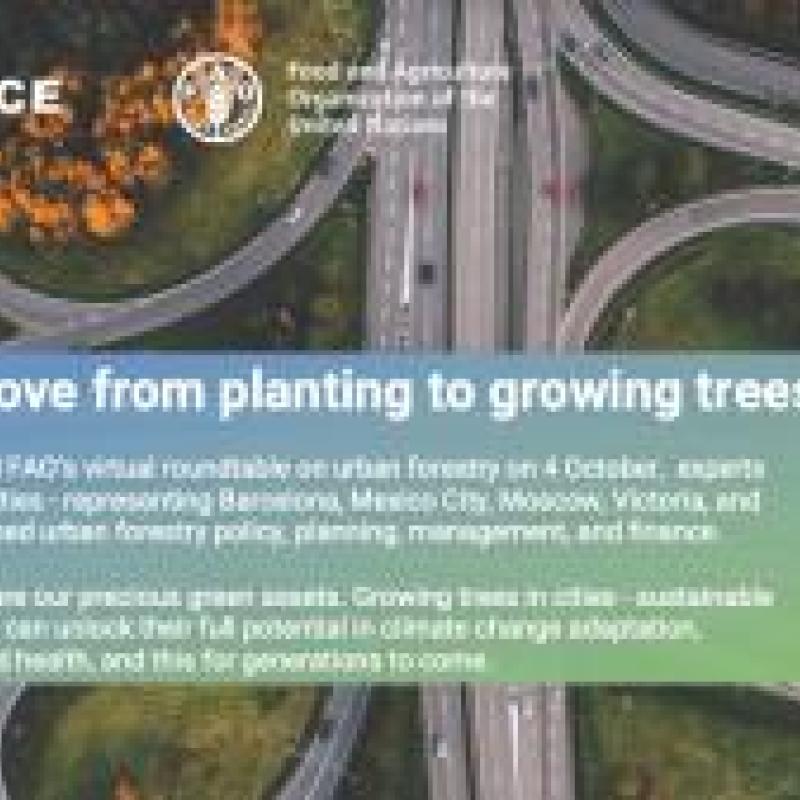
Let’s grow trees in our cities!
Policymakers looking for innovative solutions to global problems are increasingly recognizing that the answers have been around for a long time even before the earth got populated by humans. Trees can help achieve pressing global objectives for sustainable development, biodiversity conservation, and climate action.
However, it is not just the quantity of trees planted that matters. Rather, we must grow trees for generations to come – and growing the right trees in the right locations can make all the difference. Cities are one of the most critical locations. Two-thirds of humanity will live in cities by 2050, accompanied by massive concentrations of investments in public and private infrastructure and economies. At the same time, cities are a major driver of the climate crisis, responsible for around 75% of global carbon dioxide emissions while remaining highly vulnerable to its impacts.
During the event “Advancing the sustainable management of urban trees and forests” organized on 4 October 2021 by UNECE and the Food and Agriculture Organization (FAO), city authorities and international experts highlighted that growing trees in cities (sustainable urban forestry) is a cost effective, nature-based solution for climate change adaptation, with the co-benefit of reducing emissions and slowing global warming.
Urban forestry can cool the air up to 8 degrees Celsius, reducing exposure to the health impacts of extreme heat and decreasing energy demands – and associated greenhouse gas emissions – for cooling buildings. Trees in cities can also help protect lives and avoid costly damage caused by floods, landslides and other extreme weather events. They help improve biodiversity and our health.
Given the many benefits of trees in cities, UNECE Executive Secretary Olga Algayerova called on city mayors to grow more trees and improve sustainable urban forestry practices as part of the UNECE Trees in Cities Challenge. Since 2019, over 20 cities have already pledged to plant and grow over 11 million trees.
Long term sustainable management is critical, because trees are assets and their value increases with their growth. But, if trees are not properly managed, they become liabilities, that can damage infrastructure and injure people.
Indeed, widespread action to foster sustainable urban forestry is needed globally. In the runup to COP26, next month’s United Nations Climate Change Conference in Glasgow, and beyond, world and city leaders must therefore be mindful that it is not just a question of planting trees on hundreds of millions of hectares, but also about redoubling efforts to grow trees in cities that are home to billions of urban dwellers.
The recording of the event and the presentations are available here.
For more information on the UNECE Trees in Cities Challenge, please click here.

